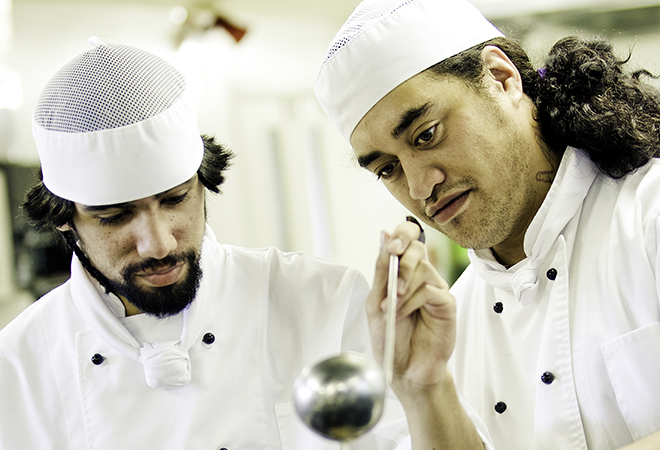
Tutor Practices that Increase Completion for Māori PTE Students
Status
Completed: 22 March 2011
Project Details
A project completed in 2011, undertaken by Workforce Development, to identify key tutor practices, in relation to delivery of content, student engagement, bicultural approach and cultural awareness, that correlate to successful outcomes for Māori students in a PTE.
Aims:
The main aims of the project were to:
- identify tutors involved in programmes who achieved high retention/completion rates with Māori students
- identify key tutor practices for successful Māori outcomes, in particular for ‘second-chance’ students in a Private Training Establishment (PTE) environment
- provide the initial contextual data that can be utilised for further investigation in establishing a deeper project to identify the specific tutor characteristics that can be linked to successful outcomes for Māori students.
Methodology:
A mixed method approach was used involving:
- analysis of student retention/completion data to identify successful course delivery and the tutors involved
- student surveys and focus group discussions to identify particular practices in relation to delivery of content, student engagement, and cultural awareness that result in quality teaching practice and learning environments for Māori.
Team

Anne Greenhalgh
Project Leader
Workforce Development Ltd
Sue Walker
Workforce Development
Kare Tipa-Rogers
Workforce Development
Rebecca Hunter
Workforce DevelopmentStatus
Funding
$8,776.00 (excl GST)
Key Findings
The key findings from the project were:
- Overwhelmingly the students surveyed claimed that their Workforce course had been a valuable learning experience for them in the context of giving them skills and meeting their expectations. Support, teaching and peers were the most commonly identified factors in helping students achieve their goals.
- Consistently, students commented that they enjoyed the relaxed nature and adult environment at Workforce. The availability of one on one time with their tutor was constantly commented on and the environment allowed them to feel comfortable enough to speak up in class. Smaller classes and the relevance of subject matter may also have contributed to this.
- The research indicated that the practice of Whānaungatanga in class dynamics, the inclusion of Tikanga in class protocols and peer support teaching methods, Tuakana Teina, have a positive impact on the retention/completion success rates of Māori students in the PTE environment.
- The results from the project have highlighted the effectiveness of a bicultural approach to tutoring adult students; where Māori students were a minority in their class, they did not feel culturally alienated and achieved success rates that compare favourably with all other students.
- Many Māori students have had negative educational experiences; however, the incorporation of Māori cultural values into teaching – the concepts of manaaki (hospitality and mutual support), aroha (concern for others), mahi tahi (working together as a group), and tuakana teina (peer mentoring) – were effective tools in creating a sense of belonging (Mana Whenua) and group cohesiveness.
Key Recommendations
Future research | The further development of this research will utilise the data from this report as a base from which to explore the actual tutor practices which result in positive outcomes for Māori students. It is intended that this will culminate in the creation of a toolkit of specific skills, practices and attitudes for tutors in the PTE sector which will enhance teaching practice in relation to success for Māori students.
A report prepared by Anne Greenhalgh, Sue Walker, Kare Tipa-Rogers and Rebecca Hunter.
(PDF, 1.34 MB, 31-pages).
- 20 March 2011